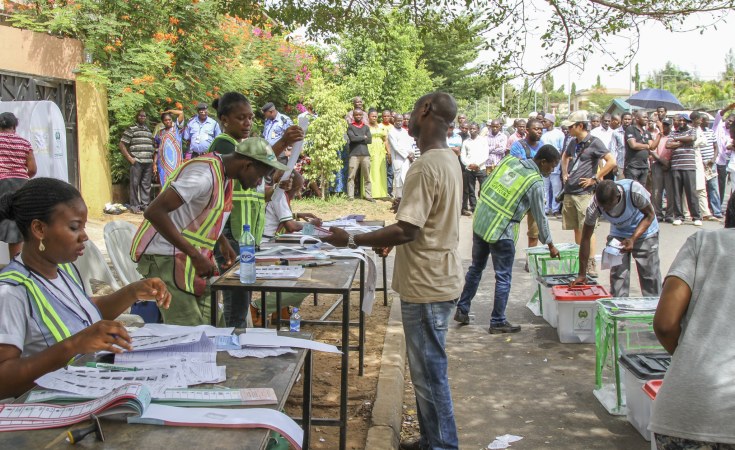Abuja, Nigeria — Nigeria began trials this week for hundreds of people, including members of the country's electoral commission, accused of committing offenses related to last year's general elections.
Trials for 190 people, including electoral body officials and members of the major political parties, opened in courts across the country on Monday.
Lawyers from Nigeria's Independent National Electoral Commission, or INEC, are serving as the prosecutor at the trials, with attorneys with the Nigerian Bar Association providing the defense.
The INEC says the trials will serve as deterrents in future elections.
Godbless Otubure, founder of the pro-democracy nonprofit Ready to Lead Africa, said civic society groups welcome the trials but hope they are not just for show.
"It shows that the recommendations that the [civil society organization] community has been making to INEC to ensure that the sanctity and integrity of the electoral process is protected, is sort of gaining ground," Otubure said. "A bit slow, but this is a welcome development. What we want to see is beyond just the announcement of trials, it's securing convictions. We'll continue to monitor it closely and see what the end product is."
Defendants are facing charges such as vote buying, stealing and destroying election materials, disorderly conduct at election venues, willful neglect of duty, possession of firearms and election-related violence.
Such infractions are common in Nigeria before, during and after the polls. In last year's general elections, police say more than 20 people were killed in election-related violence.
Emmanuel Njoku of the nonprofit Connected Development said he hopes some of the main perpetrators will be brought to justice.
"The thing that would achieve the most impact is not just trying these faceless people, there are very popular faces that were caught on live video threatening people not to come out to vote," Njoku said. "If we can see such people arrested, tried and convicted on the basis of available evidence, that in itself will go a very long way."
According to the Afrobarometer survey conducted before the polls, less than a fourth of Nigerian citizens had trust in the electoral process. Analysts say irregularities during the polls made matters worse.
Otubure said if the trial results in convictions, it could change the negative public opinions.
"It's about cause and effect," Otubure said. "If people part away with ballot boxes, disrupt the electoral process and they go scot-free, you reduce overall public trust. If people get involved in electoral offenses and they are tried and jailed, you begin to build public trust again. It will not solve the age-long challenge of mistrust but it will begin a reconstruction process."
For now, civil society organizations and observers will be watching to see what happens.


